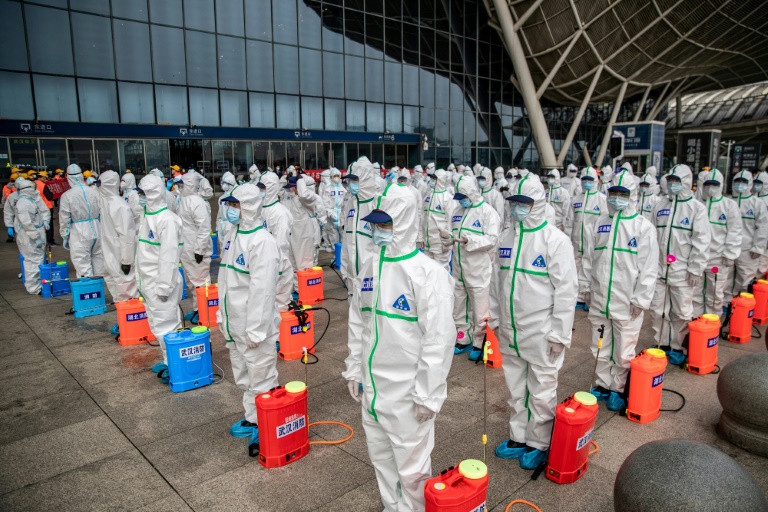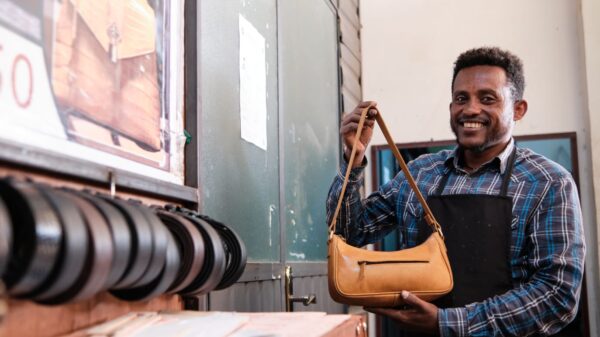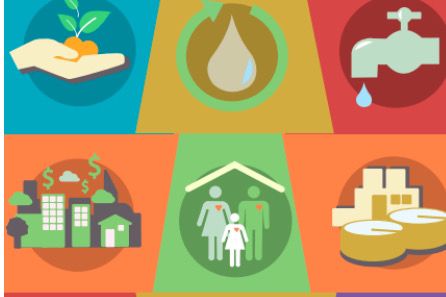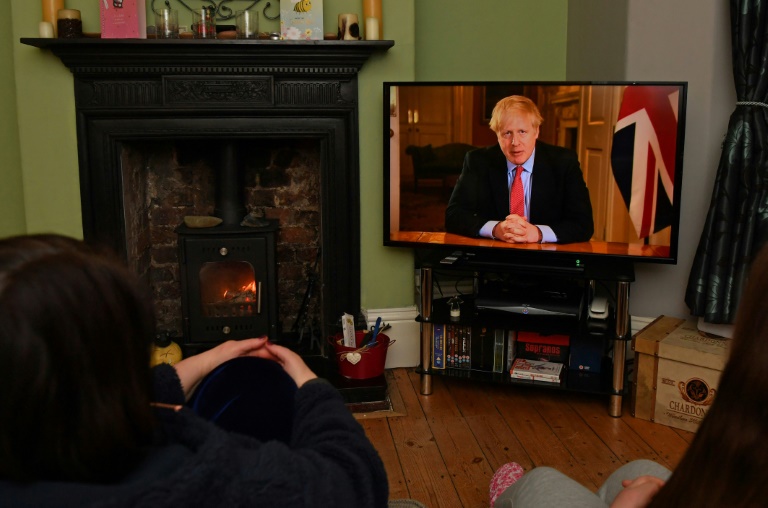
People gather at a pharmacy in Mumbai following the Indian prime minister’s announcement of a government-imposed nationwide lockdown © AFP / Indranil MUKHERJEE
New Delhi, India, Mar 24 – India ordered its billion-plus population on Tuesday to stay inside for three weeks, bringing a third of the world under lockdown as the coronavirus pandemic forced Japan to postpone the Olympics until next year.
Financial markets soared after a brutal month as the US Congress looked set to pass a stimulus bill, joining the world’s central banks in combatting the crisis with major injections of cash.
President Donald Trump voiced hope that the United States could begin reopening by Easter, which falls on April 12 for most Christians, but one of his top medical advisers said there was a need to remain “very flexible.”
Despite Trump’s optimism that the US economy will be back to normal within weeks, more governments are taking unprecedented action to stop potential virus-carriers going out and about.
Authorities advised anyone who has visited New York City, the epicenter of the outbreak in the United States, to self-quarantine for 14 days.

A family watches Indian Prime Minister Narendra Modi’s address to the nation on television at their home in Amritsar © AFP / NARINDER NANU
Just as China, where the new virus emerged last year, began to loosen some controls, neighbouring India ordered its 1.3 billion people — the world’s second biggest population — to stay at home for three weeks.
Prime Minister Narendra Modi’s “total lockdown” call doubled the number of people around the globe under some form of movement restriction to more than 2.6 billion people.
“To save India, to save its every citizen, you, your family… every street, every neighbourhood is being put under lockdown,” Modi said in a televised address.
He spoke as the epidemic continued to cut a swathe through the world’s sporting, cultural and social agenda, forcing the Tokyo 2020 Olympics to be pushed back to next year.
Japanese Prime Minister Shinzo Abe tried to sound an optimistic note, vowing that the 2021 Olympics would be “a testament to mankind’s defeat of the new virus.”

The Olympics had been due to start in July © AFP / CHARLY TRIBALLEAU
It marks the first time that the world’s biggest sporting event, set to open on July 24, has been delayed in peacetime.
– ‘You can destroy a country’ –

A man rides his bike over the Manhattan Bridge in New York © AFP / Angela Weiss
Across the planet, the grim COVID-19 toll mounted further, with more than 18,000 deaths and 400,000 declared infections, half of them in Europe according to an AFP tally.
Many governments are listening to health experts who warn the only way to slow the epidemic — and save the lives of the elderly and vulnerable — is by imposing “social isolation” measures on a population.
But Trump is not convinced the move is worth the enormous economic cost.
“A lot of people agree with me. Our country — it’s not built to shut down,” Trump told Fox News. “You can destroy a country this way by closing it down.”
He voiced hope the United States would be “raring to go” by Easter but said later that may just apply to some sections of the country.
Asked about the president’s timeline, Anthony Fauci, the top US infectious disease expert, said “you have to be very flexible” and it would entail “looking at the data.”
Trump — who faces re-election in November after three years of touting economic growth — said that a “massive recession or depression” would trigger suicides.

Staff prepare to spray disinfectant at Wuhan Railway Station © AFP / STR
“Many people — in my opinion, more people — are going to die if we allow this to continue,” he said.
But many US states have decided that the temporary pain is worth it to stem the virus. Nearly 130 million Americans, or 40 percent of the population, are under or will soon come under some lockdown order, including in the largest state of California.
– Markets rebound on stimulus –
Global markets on Tuesday recouped some of the month’s brutal losses. The Dow Jones Industrial Index surged 11.3 percent, its biggest rally in percentage terms since 1933 during the Great Depression.

The US Capitol is seen on March 23, 2020 as the Senate negotiates a coronavirus stimulus package © AFP / SAUL LOEB
The massive rise comes as US legislators reported headway on a $2 trillion rescue package that would be the largest emergency spending effort ever and inject cash both into the hands of consumers and businesses.
“Of the few outstanding issues, I don’t see any that can’t be overcome in the next few hours,” top Senate Democrat Chuck Schumer said after meeting Trump’s negotiator, Treasury Secretary Steven Mnuchin.
The US Federal Reserve earlier unveiled an unprecedented bond-buying programme, in a move not seen since the global financial crisis more than a decade ago.

Coronovirus up close © AFP / John SAEKI
And on Tuesday, finance ministers and central bank chiefs of the Group of Seven major industrial democracies vowed to “do whatever is necessary to restore confidence and economic growth and to protect jobs, businesses, and the resilience of the financial system”.
There were also some reassuring signs on the health front.
China lifted two months of travel restrictions on more than 50 million residents of Hubei province — the initial epicentre of the disease.
The travel shutdown will be eased on April 8 for Wuhan, where the virus was first detected, apparently triggered by a meat market that butchered exotic animals.
The situation is still critical in Europe, where hardest-hit Italy had mixed news.
Italy’s death toll shot back up to 743 after two days of slight decline from a world-record peak of 793 on Saturday.

Japan has been better prepared than some countries to weather the coronavirus epidemic but its new stadiums will not see the Olympic Games this year © AFP / NICOLAS ASFOURI
But officially registered new infections rose just eight percent for the second straight day.
“The measures we took two weeks ago are starting to have an effect,” said civil protection service chief Angelo Borrelli.
– Daily life upended –
Elsewhere in Europe, Ireland ordered non-essential businesses shut, Britain planned a 4,000-bed emergency hospital in London and Spain called for practical support from the NATO military alliance.

India is just the latest country to introduce a lockdown © AFP / Arun SANKAR
The extraordinary measures being imposed around the world have radically altered daily life and have also revealed horrifying tales.
Soldiers in Spain reported finding abandoned elderly people — some dead — at retirement homes.
Younger people have been warned not to visit elderly loved ones to avoid spreading the virus to the most vulnerable.
Countries in Africa, where health systems are often fragile, are also ramping up their response to the virus as cases and deaths rise.
burs-sct-cl/bgs
About The Author

































